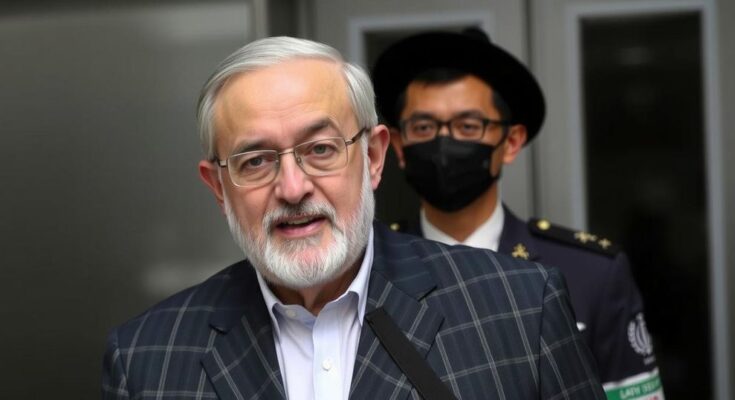Lebanon’s Foreign Ministry confirmed that cash held by an Iranian diplomat at Beirut Airport was for embassy expenses after he resisted a security search. The incident provoked a standoff, highlighting persistent tensions regarding Iranian influence in Lebanon and concern over financial support to Hezbollah. The Lebanese government remains under scrutiny about its commitment to curtailing Iranian aid amid growing geopolitical challenges.
Lebanon’s Foreign Ministry confirmed that funds in the possession of an Iranian diplomat at Beirut Airport were designated for embassy operational expenses. This announcement followed an incident where the diplomat resisted a security search of his luggage, prompting concerns among local authorities. The Ministry clarified that the Iranian government had submitted a note affirming the intent of the funds, resulting in their approval under the Vienna Convention on Diplomatic Relations.
As reported on January 3, the Iranian Embassy elucidated that the controversial suitcases contained essential documents and cash aimed at supporting embassy operations. The Al-Alam news network detailed that the airport encounter escalated tensions, leading to the mobilization of Hezbollah youths who were obstructed by Lebanese military forces. This incident marked the third confrontation of its kind since November and raised questions regarding Iran’s decreasing influence and Hezbollah’s challenges amid its ongoing conflict with Israel.
Additionally, Lebanese authorities had recently reiterated a stringent enforcement policy on cash transported via aircraft, emphasizing that any questionable shipments would face strict confiscation. Reports suggested that Iran was looking to funnel significant financial support to Hezbollah through flights originating in Tehran. Furthermore, Naim Qassem, Hezbollah’s Deputy Secretary-General, disclosed that financially strapped Lebanese families had received substantial aid financed by Iranian resources.
This ongoing situation is reflective of the broader geopolitical tensions, including the impact of Iranian financial transfers to proxy groups within the region. Historical incidents of cash transfers to entities like Hamas further illustrate Iran’s strategic financial support to allied factions, raising concerns about the potential for cash flows into Lebanon that could empower Hezbollah.
In conclusion, the recent airport incident involving an Iranian diplomat underscores the delicate balance of domestic security and international relations in Lebanon. The incident illustrates the persistent challenges facing Lebanese authorities in regulating Iranian influence and their commitment to restricting financial aid to Hezbollah amidst growing international scrutiny.
The tensions surrounding the Iranian diplomat at Beirut Airport arise amid ongoing geopolitical conflict involving Iran, its proxy groups, and Lebanon’s military and political landscape. Lebanon has a historical relationship with Iran, primarily through Hezbollah, which has been involved in regional conflicts against Israel. The situation is compounded by Iranian efforts to support Hezbollah with financial resources, often leading to confrontations at border points and airports. The Lebanese government’s attempts to curb the influence of Iranian funding reflect a need to navigate both domestic security concerns and international relations, particularly with Western powers like the United States and neighboring Israel.
The incident involving the Iranian diplomat at Beirut Airport unveils significant implications for Lebanese authorities as they grapple with managing Iranian influence and addressing security concerns. The government’s ability to regulate the flow of funds to Hezbollah is under scrutiny amidst rising tensions between Iran and Israel. This continues to highlight the intricate dynamics of international diplomacy, regional security, and domestic politics in Lebanon.
Original Source: www.iranintl.com




